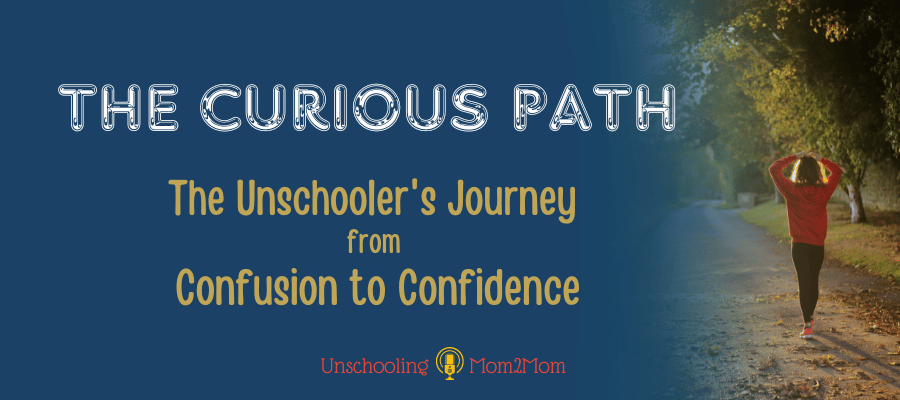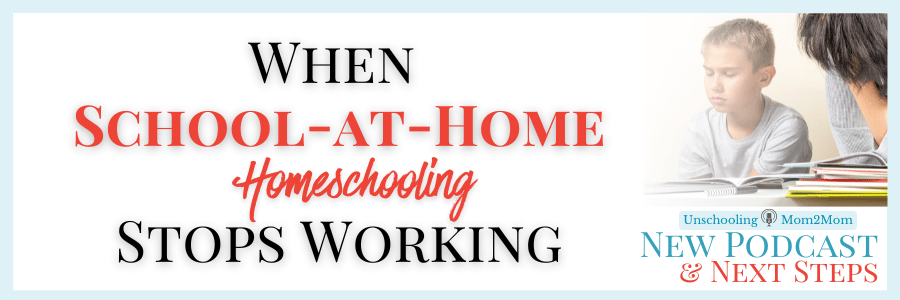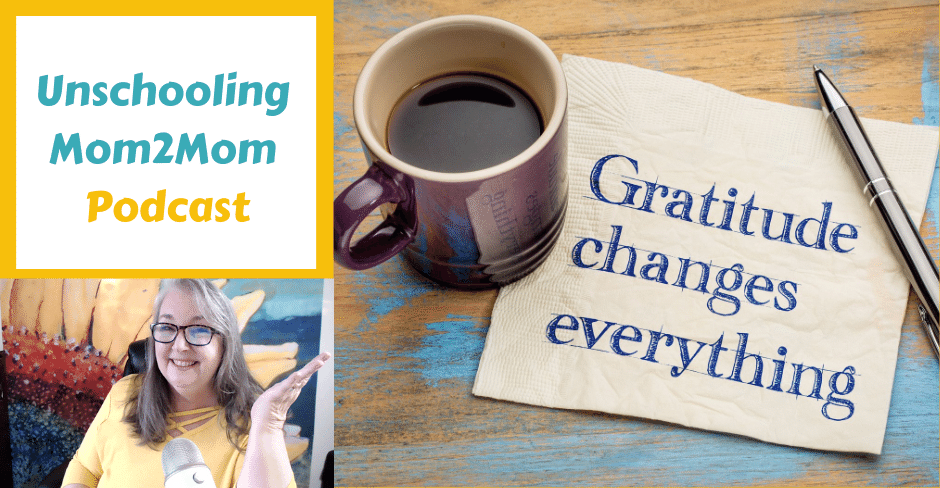The Curious Path - The Unschooler's Journey from Confusion to Confidence
Unschooling Confusion
The Unschooling community has grown by leaps and bounds. So many families have discovered that the school approach to learning is not what they want to duplicate. And as we move around on the internet, in Facebook groups or Instagram conversations, we can see how a good deal of variety exists, as to where everyone is on their unschooling journey.
Some people are brand new, while others have been at it for a while. Even within my Creating Confidence Membership group, we have parents who’ve been at this for years - they stay in the group because it’s nice to have a connection with a solid unschooling community. And we have parents who just pulled their kids out of school last week.
What also happens is something most of you are familiar with... parents are at different places in what they understand about unschooling. And each of these places brings its own advantages and disadvantages.

Some people dive in 100%. They see it as “no rules” “be free!” It feels great to the parents, initially, and also to the kids.
But pure freedom isn’t something kids have a lot of experience with.
Heck, we adults don’t have a lot of experience with it either - especially in our recollection of childhood. It’s a little bit of trial and error. And the kids’ experience is different from ours as the parent GRANTING freedom, and they’re the Receiver of freedom.

Some kids freak out a little about the freedom. They may think you’ve lost your mind and worry that they’re somehow being cast adrift. You might see them trying to duplicate little pieces of school - not a lot, but you will see little indications of this. I did another podcast recently where the kids were wondering when mom was going to start teaching them.
Podcast: Emotional Roller Coaster and Skeptical Kids
Podcast: Are Your Kids Worried about Unschooling?
Others are like...YEAH!!! PARTY TIME! and if you pause or look at them a little wary of what’s happening, they’re the first ones to say,
“Hey! You said freedom! Don’t backtrack on me now!”
But I want to talk about YOUR reactions to both of these kinds of situations. And then also a little more insight about unschooling and how it works.
So you as the parent, you’ve read or listened or watched various people talk about unschooling. You’ve absorbed the parts that resonated with you and discarded (even if just temporarily) the parts that didn’t.
It’s just that prioritizing technique our brains use to prune through new information.
So when you have that hesitant worried-about-the-chaos kid, you might even see it as,
“Whew! Glad my kid is choosing to do that vocabulary list”
or whatever the schooly thing they want to do.
And because we haven’t deschooled all the way -
because who has really deschooled completely? - we have a little relief that they’re CHOOSING to do a little school stuff.
And that CHOICE element seems very Unschooly, right?
But in fact, in so many of these situations, it’s that the CHILD hasn’t done enough deschooling.
They have no way to really do that without your help. They’re not reading up on it - they just know what’s familiar.
So it’s up to you to help them move through this.
Continuing with that Vocabulary example...
Show them where their vocabulary is developing without the use of a workbook or a class.
Search for the learning that’s hiding - in daily activities, in the home, in the community - especially those subjects or topics that you or your child are a little worried about. That worry makes you cling to the school way because it seems safe. And because it’s not full-on school, it seems okay.
And it IS better than sending them to school, but you’re not fully embracing unschooling yet.
It’s ok. For a lot of people, it’s a process.
So if this is you, try these three things:
- Create a scavenger hunt
for learning in your home or community.
My Math Course has an excellent one to guide you through the process. - Read a little about
deschooling every day - Or listen to
podcasts.
We’re doing a Deschooling Challenge this month in the membership - you can always join us and tap into that. - Read a little more about unschooling. Don’t consider that box checked. You may not be panicking the way you did initially, but you’re not there yet.
The UnschoolingMom2Mom.com website is a gold mine for this!

So then, let’s look at what to do with the other child response.
For the kid that says,
“Hold up, there! Don’t shift gears on me now - I LOVE all this freedom!”
You may find that you need to back up a little.
It’s ok to tell your kids,
“This is a process. We are learning what works and what doesn’t for OUR family.
For You and for me."
Your focus is going to be on learning to trust each other AND learning to negotiate.
That’s really how we learn to handle freedom.
One Week Plans...
This is why I push my clients to create a weeklong plan.
Where can everyone get their needs met?
For example:
He wants to stay up all night.
Let’s not do that on Wednesday, because we have something to go do on Thursday.
But because we’re home all day on Friday, Thursday would be a good night for that.
It’s about
everyone
getting their needs met.
Maybe there’s a reason they want to do that on Wednesday night.
Maybe the Thursday thing could move. Or be skipped this one time.
Maybe it’s tied to your old way of life and your kids has outgrown it before you have. IDK.
This is just an example of howI’ve seen it play out.
Maybe the freedom has to do with technology, or food, or cocooning in their room -
I gave the sleep one, because we were just talking about that on a recent Monday morning meeting
in my coaching group.. .
So the goal in this family dynamic is to see where you can comfortably say
“yes.”
And doing things a week at a time gives you the chance to evaluate while everyone still remembers what went right and what didn’t.
It’s not a set-it-and-forget-it thing.
It’s a living breathing organic plan.
It changes as the people change.
Sometimes the story we have in our heads about something aren’t accurate. That’s why we step forward a little at a time for some of these things. Sometimes, we make mistakes. We’re seeing where the edges are. For this week.
And in either of these situations, I want you to know that you’ll hear people talk online about how THEY are handling various scenarios. Maybe they’re still going to classes or insisting on certain things. Maybe they’ve thrown the barn gate wide open and the kids are too wild for someone else’s tastes. And that comfort level will vary from person to person.

I bring this up because sometimes it can be confusing when we hear people who are in an unschooling group, describe things that don’t seem that unschooly. Or maybe they seem too far, in our opinion.
Know that everyone is managing as they can. And, as Pat Farenga from Growing Without Schooling said a long time ago, “Parents unschool to the degree they are comfortable with.”
I agree with that, to a degree. Yes, that’s what we do.
But know that we can get stuck with making sure WE are comfortable, and then we don’t continue to explore and learn. That discovery process can enable us to embrace unschooling a little more this month than last month. It allows us to SEE what people are talking about and how unschooling can work in ways we THOUGHT were impossible 6 months ago.
So if you’re “Kind of Unschooling,” that’s fine.
But continue to see where you can let subjects go, or other aspects of parenting that you’re clinging to.
Not in a raise the white flag of giving up - but stepping away from seeing it as a power struggle. It’s all a learning curve - for us too. So soften enough to feel flexible in various situations.
Notice when you say to yourself,
“Well, that’s a hard no.”
Is it?
Could it be a “Not right now?” or a “I don’t see that working yet.”
Because unschooling is all about parents deschooling and kids learning how to handle freedom.
It’s about letting go of the trappings of school and noticing the learning that is hard-wired into the little and big humans in our lives. And that’s hard to do because it’s so familiar.
We’re used to a One Right Answer,
not a Your Mileage May Vary.
We’ve never really seen what truly individualizing looks like.
As we connect more with our kids, we can SEE that learning that’s happening spontaneously - or those issues they need support on.
Unschooling is about helping them see that we’re on their team, and not trying to manipulate them toward something that alleviates our fear.
We work on those fears - that’s our job, not our kids'.
We are learning how to partner with them. And that’s such a gift. They’ll carry that with them into adulthood.
So...in the unschooling communities - know that everyone’s journey is different.
For all kinds of reasons.
That’s why we have to continue to learn more about unschooling so we can apply those principles as needed in our lives. You’re not duplicating someone else’s path.
Don’t waste time letting yourself get confused because someone applies the principles differently from you or draws boundaries or lines where you don’t.
Everyone’s limits or lack of limits are an ever-evolving process softening and changing because that’s what it’s like to truly individualize this process.

We really only learn where our edges are by messing up and saying,
“Oh! That’s not what I thought would happen.
I need to back up a couple steps.”
That’s how we become the parents we want to be, supporting and loving our kids as is.
Being their resource, not their gatekeeper.
It’s a messy process. But you don’t have to do it alone.
Reach out if you need support or have some questions or thoughts on this.
And I’ll be back with the Unschooling Mom2Mom podcast next week...











